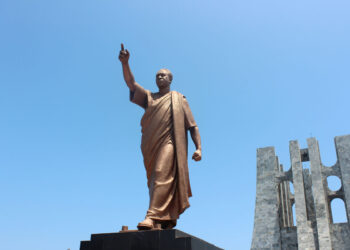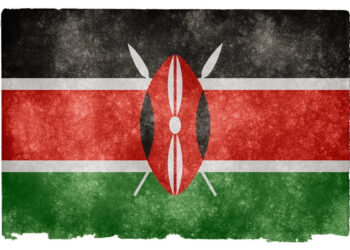Africa, a continent rich in natural resources, faces ongoing economic challenges despite its wealth. From vast mineral deposits to fertile agricultural land, the continent possesses significant potential for economic growth.
Several countries have experimented with resource-backed currencies or similar economic strategies. Examining these cases can provide valuable insights for African nations.
In 2018, Venezuela launched the Petro, a cryptocurrency backed by the country’s oil reserves. While the initiative faced significant challenges, it highlighted the potential and complexities of linking currency value to natural resources. The Venezuelan experience underscores the importance of transparent governance, accurate resource valuation, and stable political environments.
However, the persistent issues of poverty, inflation, and economic instability suggest that a new approach is needed. One such strategy involves backing African currencies with natural resources. This essay explores why such a system could foster economic prosperity in Africa.
Stabilizing Different African Currencies
One of the primary reasons for backing a currency with natural resources is to stabilize the currency. Many African nations suffer from volatile currency values, which lead to economic instability.
A currency backed by tangible assets like gold, oil, or other resources can offer a more stable value. This stability comes from the intrinsic value of the backing resource, which is less prone to rapid fluctuations compared to fiat currencies.
For instance, when a currency is backed by gold, its value is directly tied to the value of the gold reserves. This reduces the risk of inflation, as the government cannot print money indiscriminately without increasing gold reserves. Similarly, if an African country backs its currency with a resource like oil, the currency’s value would reflect the global oil market, providing a more
Boost Investment
A stable and resource-backed currency can also attract foreign and domestic investment. Investors seek environments where their capital is protected from devaluation and economic instability. A currency backed by natural resources can instill confidence among investors, signalling that the country has a solid economic foundation.
Foreign investors often hesitate to invest in African countries due to fears of currency devaluation and political instability. By backing their currency with natural resources, African nations can mitigate these fears, making them more attractive to investors. This influx of investment can lead to increased capital for development projects, infrastructure improvements, and overall economic growth.
Reducing Dependency on Foreign Aid and Debt
Many African countries rely heavily on foreign aid and loans to support their economies. This dependency can lead to a cycle of debt and economic dependency, hindering long-term prosperity. By leveraging natural resources to back their currencies, African nations can reduce their reliance on external financial support.
A resource-backed currency can improve a country’s creditworthiness, making it easier to secure loans at favourable terms if needed. Moreover, it can enable countries to generate revenue internally through resource exports, reducing the need for foreign aid. This self-reliance is crucial for sustainable economic development and autonomy.
Promote and enhance Africa’s Economic Sovereignty
Economic sovereignty is vital for any nation’s prosperity. African countries often face external pressures and influence over their economic policies. By backing their currencies with natural resources, African nations can assert greater control over their economic destiny.
A resource-backed currency reduces the leverage that external entities have over a country’s economy. It allows nations to implement policies tailored to their specific needs without succumbing to external economic pressures. This sovereignty can lead to more effective governance and economic strategies that prioritize national interests.
Ensures Sustainable Resource Management
Linking currency value to natural resources can also promote sustainable resource management. Governments would have a vested interest in maintaining and responsibly exploiting their natural resources to ensure currency stability. This could lead to better environmental practices and long-term economic planning.
For instance, a country with significant timber resources might be more inclined to implement sustainable forestry practices if its currency’s value depends on these resources. Similarly, nations with mineral wealth might focus on minimizing environmental damage during extraction processes to maintain the resource base that underpins their currency.
Bottlenecks hindering the realization of African Currency
While the concept of a resource-backed currency offers many potential benefits, it is not without challenges. Implementing such a system requires careful planning and consideration of various factors.
Valuation and Resource Management
Determining the value of natural resources and managing them effectively is crucial. Governments must establish accurate valuation mechanisms and ensure transparent management of these resources to maintain investor confidence and economic stability.
Diversification of Backing Resources
Relying on a single resource to back a currency can be risky due to market fluctuations. Diversifying the backing resources can mitigate this risk. For instance, a country could back its currency with a mix of gold, oil, and agricultural products to create a more resilient economic foundation.
Political Stability
Political stability is essential for the success of a resource-backed currency. Governments must ensure that their policies and management of natural resources are free from corruption and political interference. Transparent governance is key to maintaining the integrity of the currency system.
Global Market Dynamics
African countries must also consider global market dynamics. The value of natural resources can be influenced by international demand and geopolitical factors. Effective strategies to navigate these dynamics are crucial to sustaining the value of a resource-backed currency.
Discover more from Newswire
Subscribe to get the latest posts sent to your email.







